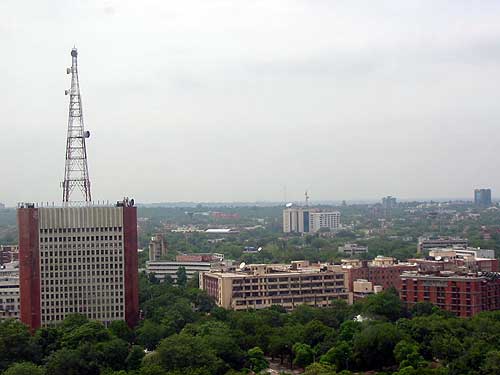(Source: The Hindu)
by Sobhana K. Nair
Prasar Bharati has asked it to come up with a proposal to phase out SW transmitters
If Prasar Bharati [India’s largest public broadcasting agency] has its way, All India Radio will have to stop all global short wave transmissions — eighty years after it began international broadcasting in 1939. AIR is resisting the move arguing that it will curtail its global reach.
There are about 46 short wave transmitters that run both domestic and external services. Out of these, 28 are used for the external services alone. Barring three transmitters that were recently installed, all the others will have to be shut down over the next six-months. The external services are broadcast to 150 countries in 13 Indian languages and 15 foreign languages.
Prasar Bharati had written to the AIR in May third week asking it to come up with a proposal to phase out the short wave transmitters.
‘Whimsical’
A high-ranking AIR official called it a whimsical decision. “There will be a huge implication on external services. The short wave is the only effective way to reach to any part of the world. FM and other modes don’t work. Even live streaming on web can’t be complete substitute to this due to varied penetration of internet connectivity. Any country that wants to scuttle Indian radio can just shut down our web channel.”
Prasar Bharati CEO Shashi Shekhar Vempati denied that discontinuing short wave will impact global outreach. He said there would be fresh investments in expanding in DD India, AIR World Service and Prasar Bharati’s Gobal Digital Platform. “Going forward, AIR world service will be primarily a digital service which will leverage FM and Medium Wave capabilities where available and short wave in a limited way for strategic purposes. We will also explore hiring airtime in transmitters outside India on a need basis where feasible,” he told The Hindu.
China has recently started buying air time on Nepalese radio channels for its programmes. India too may soon follow suit.
Limited audience
A study on short wave transmitters conducted by the Prasar Bharati had revealed that shutting down these transmitters would save the AIR nearly ?60-70 crore. The majority of the transmitters were nearly 25 years old and obsolete. “Short Wave, as a mode of transmission, has very limited audience, which is further dwindling with time. The short wave network will be rationalised so we are able to invest more in content and in newer ways of broadcasting, like Internet streaming, digital radio and in future satellite radio. We will, however, preserve a limited set of short wave for strategic purposes and national interest,” Mr. Vempati added.[…]

